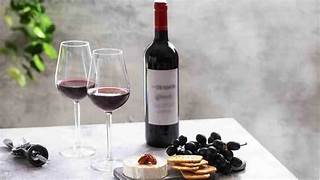
Wine connoisseurship is often seen as a sophisticated hobby that combines sensory exploration, cultural appreciation, and social engagement. Enthusiasts revel in discovering the subtle complexities of flavors and aromas, learning about winemaking traditions, and sharing their knowledge with others. For many, it’s an enriching pastime that adds depth to life’s experiences. However, the path from passion to dependence is not always clear, and the risks of wine connoisseurship turning into a problematic habit are real and often overlooked.
The Allure of Wine Connoisseurship
For wine enthusiasts, the journey often begins with curiosity—an interest sparked by a memorable sip or a shared experience. This initial fascination can grow into a deeper appreciation as they explore different varietals, vintages, and regions. The rituals surrounding wine, from swirling and sniffing to pairing it with food, offer a sense of ceremony and enjoyment.
Many find community in their pursuit, joining tastings, clubs, or events that celebrate the craft. For others, the intellectual challenge of learning about terroir, fermentation techniques, and aging processes enhances the appeal. At its best, wine connoisseurship is a balanced and rewarding pursuit.
When Passion Turns Problematic
While wine appreciation is often a harmless pleasure, the risk of developing an unhealthy relationship with alcohol is ever-present. The line between enjoyment and dependence is subtle and easy to cross, especially as one’s involvement in the world of wine deepens.
Dependency often creeps in unnoticed. The social enjoyment of wine might evolve into regular consumption to cope with stress, unwind, or escape. The more one drinks, the more tolerance builds, requiring larger quantities to achieve the same effect. Over time, this can lead to a pattern where wine becomes a necessity rather than a choice.
For some enthusiasts, the pursuit of excellence in wine connoisseurship can mask unhealthy behaviors. Excuses like “it’s for the tasting experience” or “I’m refining my palate” can justify overindulgence. This rationalization can obscure the emotional or physical reliance that may be developing.
Signs of Dependence
Recognizing when passion has turned into dependence is critical. Warning signs include:
- Increased Consumption: Drinking wine daily or in larger quantities than intended.
- Justification: Using connoisseurship as a reason to drink excessively.
- Neglected Responsibilities: Allowing wine-related activities to overshadow personal or professional obligations.
- Isolation: Shifting from social drinking to drinking alone.
- Financial Strain: Overspending on wine collections or related activities.
If these behaviors become frequent, it may signal a deeper problem.
Finding Balance
Maintaining a healthy relationship with wine requires self-awareness and moderation. Set limits on consumption, such as reserving wine for special occasions or tasting events. Diversify hobbies and interests to avoid becoming overly fixated on wine. Additionally, consider incorporating alcohol-free days to ensure balance.
For those feeling their relationship with wine is becoming unhealthy, seeking help early is vital. Professional counseling, support groups, or programs focusing on alcohol moderation or recovery can offer guidance.
Conclusion
Wine connoisseurship is a journey of discovery and pleasure, but it carries risks that should not be ignored. By staying mindful of consumption patterns and addressing potential issues promptly, enthusiasts can enjoy the richness of wine without letting their passion turn into dependence. Balance and awareness are key to ensuring that the love of wine remains a source of joy rather than a source of harm.